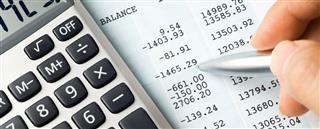
It can be tough being self-employed since you have to look after every aspect of your business. However, you can deduct your self-employed business expenses, which an employee can’t. That will help you save a lot of taxes.The following are the most common self-employed business expenses you can deduct in your income tax return.
Subcontract
It includes all the costs of hiring outside help to perform tasks for your business. Subcontractors are not your employees. You can submit T4A slips to CRA to report the subcontracts fees you pay or will pay. If you are in the construction industry, you should use T5018 slips instead.
Advertising
You can deduct expenses for advertising, including advertising in Canadian newspapers, television and radio stations.
Meals and entertainment
Entertainment expenses include tickets to an entertainment or sporting event, gratuities, cover charges, and room rentals such as for hospitality suites.
You can claim meals and entertainment as self-employed business expenses as long as they have a legitimate business purpose. However the maximum amount you can claim is 50% the amount you paid. These limits also apply to the cost of your meals when you go to a convention, conference, or similar event.
There are several exceptions to this 50% rule.
- Your business regularly provides food, beverages, or entertainment to customers for compensation (for example, a restaurant, hotel, or motel);
- You pay meal and entertainment expenses for a Christmas party or similar event, and you invite all your employees (note that you are limited to six of these events each year);
- 80% of expenses for food and beverages consumed by a long-haul truck driver during an eligible travel period are deductible.
Bad debts
You can deduct bad debts as self-employed business expenses if:
- you had determined that an account receivable is a bad debt in the year; and
- you had already included the receivable in income.
Insurance
You can deduct all commercial insurance premiums on any buildings, machinery, and equipment you use in your business. In most cases, you cannot deduct your life insurance premiums as self-employed business expenses.
Interest as self-employed business expenses
You can deduct interest on money borrowed for business purposes or to acquire property for business purposes.
You may be able to deduct interest expenses for a property you used for business purposes, even if you have stopped using the property because you are no longer in business.
Business tax, fees, licences, dues, memberships, and subscriptions
You can deduct all annual licence fees and business taxes you pay to run your business. You can also deduct annual dues or fees to keep your membership in a trade or commercial association.
You cannot deduct club membership dues (including initiation fees) as self-employed business expenses if the main purpose of the club is dining, recreation, or sporting activities.
Office expenses as self-employed business expenses
You can deduct the cost of office expenses. These include small items such as pens, pencils, paper clips, stationery, and stamps. Office expenses do not include items such as calculators, filing cabinets, chairs, and desks. These are capital items.
Supplies as self-employed business expenses
You can deduct the cost of items the business used indirectly to provide goods or services (for example, drugs and medication used by a veterinarian or cleaning supplies used by a plumber).
